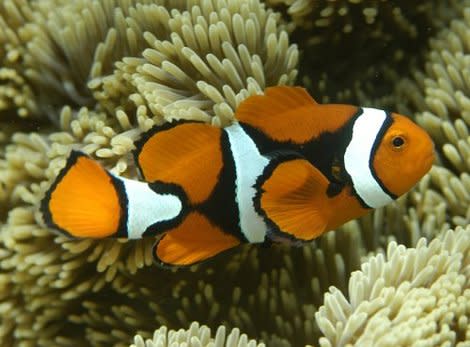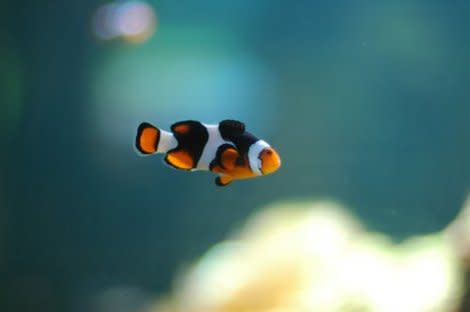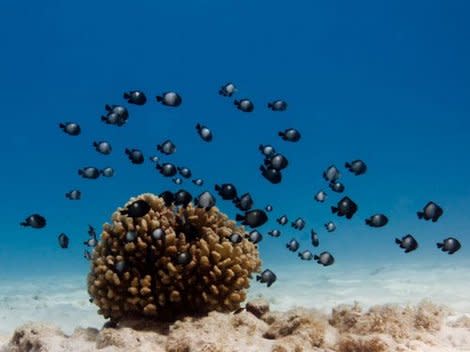Finding Nemo Just Got Harder: Global Warming Could Cause Clown Fish Extinction

The Center for Biological Diversity filed a formal petition today with the National Marine Fisheries Service seeking Endangered Species Act protection for the orange clownfish - star of the movie Finding Nemo - and seven similarly coral-dependent damselfish threatened by climate change, ocean acidification and the marine aquarium trade.
"We risk losing the striking fish that inspired Finding Nemo forever if we don't put the brakes on global warming and ocean acidification," said Shaye Wolf, director of the Center for Biological Diversity. "Carbon pollution harms these fish and destroys their coral reef homes. If we want these beautiful animals to survive in the wild, not just in a movie, we have to protect them under the Endangered Species Act."
Related: 10 most popular dog breeds of 2012
Clownfish and damselfish are at risk from ocean acidification - caused by the oceans' absorption of man-made carbon dioxide pollution - which damages their hearing, sight, and smell, said Ms. Wolf. Ocean acidification interferes with the ability of young fish to avoid predators and find their coral reef homes.
Ocean acidification and warming also threaten to destroy the coral reef habitat of clownfish and damselfish. Scientists have warned that coral reefs are likely to be the first worldwide ecosystem to collapse due to global warming. Ocean warming is both destroying the coral reef habitat and slowing its growth, argues the Center for Biological Diversity.
"Coral reefs are the rainforests of the ocean, but carbon pollution will bulldoze their biodiversity," Ms. Wolf said in a press release. "The longer we wait to provide Endangered Species Act protection and reduce the greenhouse gases harming reef fish and destroying their homes, the harder it's going to be to save these unique creatures."
Related: 13 hilarious photos of cats caught in weird places
The orange clownfish and damselfish may also face threats from the global marine aquarium trade. The United States is the world's largest importer of ornamental marine fish, and damselfish and anemonefish are by far the most commonly traded species. Studies indicate that the orange clownfish and black-axil chromis damselfish are suffering population declines in the wild because of overharvesting for the aquarium trade.
A further issue is that the coral itself is being harvested for aquarium use. A study published in May of this year in the journal Plos One estimates that the marine aquarium trade targets "over 150 species of stony corals, hundreds of species of non-coral invertebrates, and at least 1,472 reef fish species from 50 families."
The reef fish in the petition include the orange clownfish, which spends nearly its entire life protected within anemones on coral reefs, and seven species of damselfish that occur in U.S. waters and depend on branching corals particularly vulnerable to climate change threats. Here are photos of a few of the fish species that are at risk:

Orange Clownfish As you probably know from watching Finding Nemo eleventy million times, orange clownfish, also called anemonefish, are specialized coral reef fish that live within host anemones and are found in warmer waters in the Pacific Ocean, Indian Ocean, off northwest Australia, southeast Asia and Japan.
Related: 20 reasons why everyone should own a cat

Reticulated Damselfish
This fish from the Indo-Pacific is often recommended for novice salt water aquarium keepers. That may change if the species becomes protected.

Hawaiian Dascyllus
The Hawaiian dascyllus, also known as the white-spotted damselfish, is found around the Hawaiian Islands and Johnston Island.
- By Joslyn Gray
Follow Joslyn on Babble
For more fish that are in danger of extinction, visit Babble!
MORE ON BABBLE
25 horrifying photos of stuff pets have ruined
The 12 strangest family pets from around the world
10 funny pictures of dogs acting like people
7 ways to give back to your local animal shelter
The 12 best pets for people with allergies

